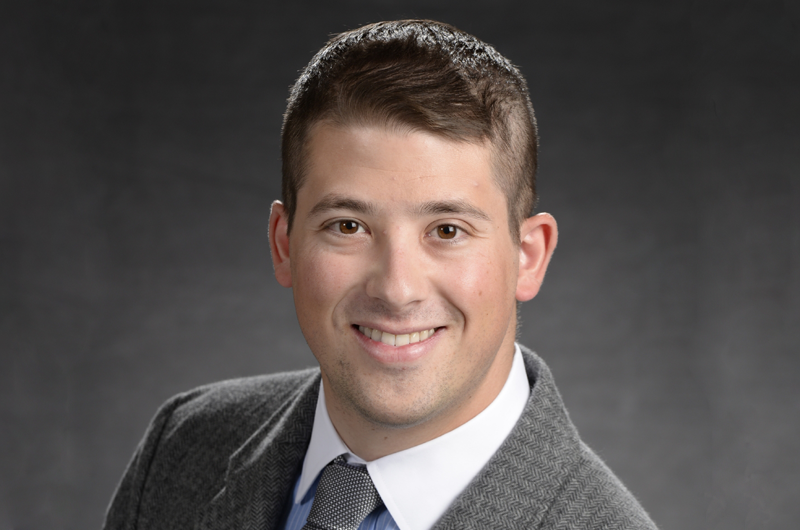Dr. William Silverstein: Embracing Resource Stewardship, from Medical School to Residency
Dec 11, 2018 - Profiles
Profile of Dr. William Silverstein's journey with Choosing Wisely through medical school to residency.
Dr. William Silverstein: Embracing Resource Stewardship, from Medical School to Residency
Dec 11, 2018 - Profiles
Profile of Dr. William Silverstein's journey with Choosing Wisely through medical school to residency.

Getting the future generation of doctors to embrace their important role in resource stewardship has been a major endeavour for Choosing Wisely Canada since 2014. While it’s true that this is a long-term approach to tackling overuse, it’s comforting to know that, at least for one recent grad, this is working. This profile of Dr. William (Billy) Silverstein tells the story of his engagement with the campaign through summer jobs during his undergraduate studies to his experiences today as an internal medicine resident.
In the summer of 2014, soon after the campaign launched, Billy joined the Choosing Wisely Canada office alongside Dr. Elliot Lass for a summer student research position. In the early years of the campaign, there was little research on how Choosing Wisely patient materials, developed by Consumer Reports for the United States campaign, were being received by Canadian patients. Billy and Elliot led a research project that evaluated the effectiveness of patient materials by testing them with patients in waiting rooms of family practices. The results of this study were presented at the 2015 American Geriatrics Society annual conference and were published in BMC Research Notes journal in 2016. This study provided valuable insight into how Choosing Wisely Canada could adapt materials to resonate with a Canadian audience. This project not only introduced Billy to the campaign, but fostered a continued interest in resource stewardship.
Advocating for Choosing Wisely in Undergraduate Medical Education
In 2015, Billy, along with Elliot Lass and Dr. Anand Lakhani, a fellow University of Toronto medical student, spent a second summer at the Choosing Wisely Canada office. That summer, Choosing Wisely Canada was awarded an ABIM Foundation ‘Putting Stewardship in Medical Education grant’. To advance the campaign in undergraduate education, the three students helped to create the Students and Trainees Advocating for Resource Stewardship (STARS) campaign. STARS was developed as a student-led campaign to advance resource stewardship education in medical schools across Canada.
Billy says he noticed there was a gap in teaching resource stewardship in the undergraduate medical education curriculum and believed it was important to engage students in their pre-clinical training in order to advance their resource stewardship competencies in practice.
“STARS was created from the bottom-up to encourage students to be advocates and leaders of resource stewardship,” says Billy. “We were aware when we created STARS that the skills and knowledge we learn in undergraduate medical education will shape how we practice in our careers.”
STARS has since gained international attention and inspired other countries to launch similar initiatives in the United States and beyond.
Choosing Wisely in Residency Training
Billy is now a second-year resident at the University of Toronto. In October, he began his placement at Toronto Western Hospital in internal medicine.
“As a resident in internal medicine, I interact with many different aspects of medicine and complex patients with multiple health conditions,” says Billy. “But I also see the downstream effects of unnecessary tests and treatments that are routinely ordered and not adding value to patient care.”
As a senior resident at Toronto Western Hospital, Billy believes Choosing Wisely recommendations offer valuable teaching opportunities to junior residents and medical students. From unnecessary routine blood work, to de-prescribing, the recommendations allow trainees to think critically about the value a test or treatment has for patients on the unit.
Choosing Wisely Canada recommendations are meant to spur conversation about unnecessary tests and treatments. They can encourage shared-decision making and allow clinicians and patients to determine a treatment plan together. Billy says these conversations are essential in building a trusting relationship with patients and ensure they are informed about their care.
“Oftentimes, patients who are asking for tests are doing so because they want to rule something out,” says Billy. “They may be afraid of certain diagnosis or outcome, and the test can be seen as providing a definitive answer. However, a conversation can be very effective in alleviating those fears by explaining why we believe it in their best interest not to do a test or treatment. Many patients are receptive to this when you explain your rationale and offer alternative and safer options.”
Choosing Wisely in Practice
Billy has been a leader and advocate for Choosing Wisely Canada since its inception. He has seen firsthand the campaign grow from a conversation to the national voice for reducing unnecessary tests and treatments.
“It’s really struck me how far the campaign has come from when I first started in 2014,” says Billy. “The principles of the campaign have become a facet of medical education, from didactic teaching to clinical teaching at the bedside. Choosing Wisely has been intertwined with the many different aspects of practicing in medicine.”
Billy says he is very aware that unnecessary tests and treatments are still ordered. But there is a cultural shift in how students, residents and clinicians think about their ordering habits and behaviours. This culture has been enabled by leaders like Billy who are continuing to have conversations about unnecessary tests and treatments with their peers, trainees and patients.
“If we’re at rounds with a team of physicians, nurses, and pharmacists, you now hear Choosing Wisely recommendations come up in almost every conversation,” says Billy. “It’s become a verb – like how we use Google as search, we now ask if this is Choosing Wisely.”
